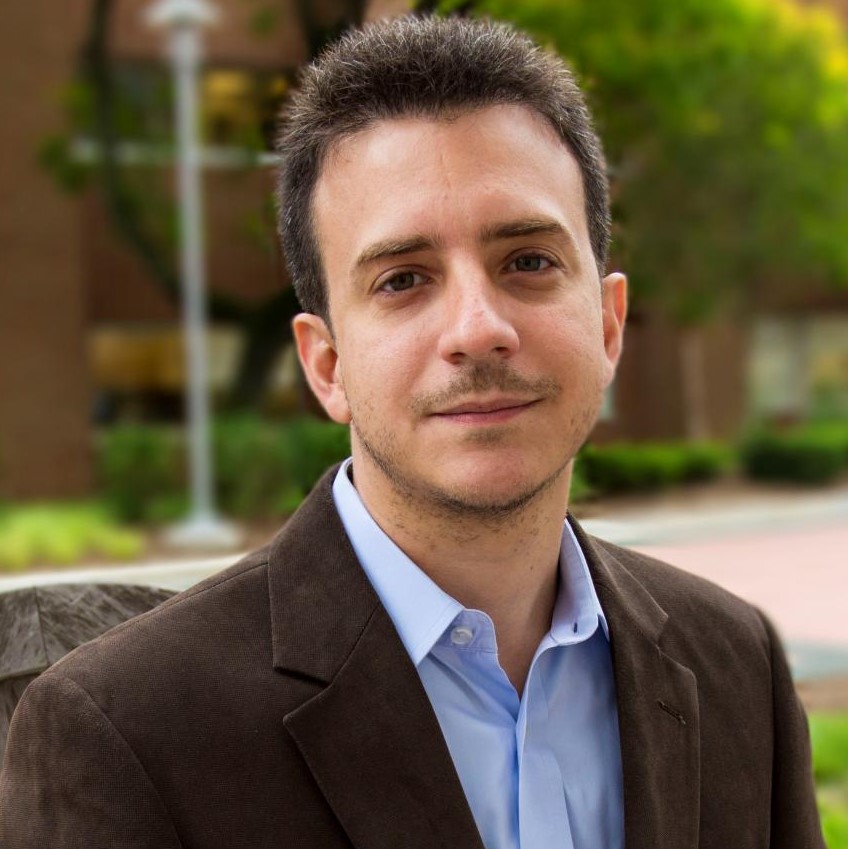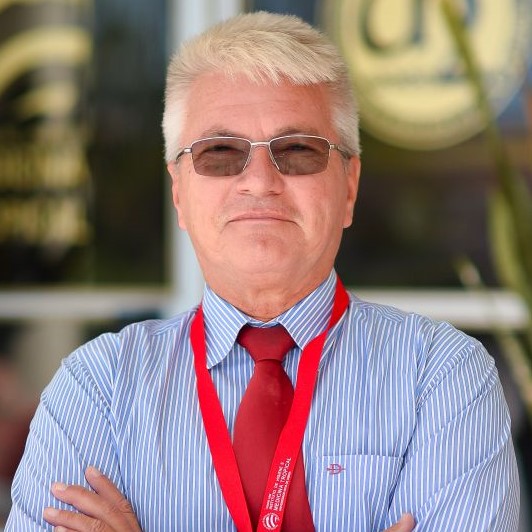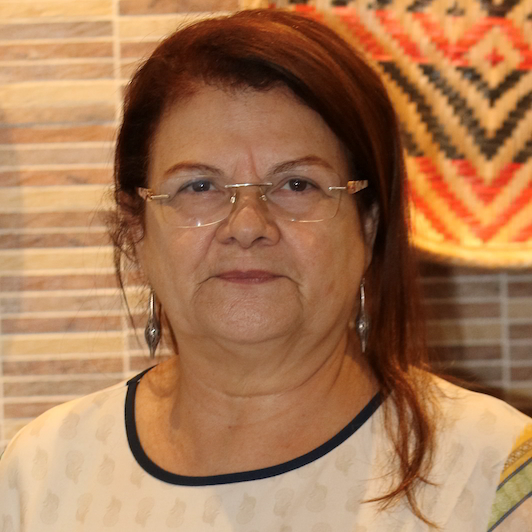brazil
research consortia
RePORT-BR (CCASAnet-IeDEA) – NIH
background
The NIH-funded Caribbean, Central, and South America network for HIV epidemiology (CCASAnet) is the principal HIV epidemiology research network in Latin America and has an established 14-year track record of producing meaningful work.
aims
To identify and quantify the systemic and individual determinants of outcomes among PWH in Latin America using comprehensive retrospective data and novel data science methodologies to inform clinical practices and health policy in the region.
To characterize the contributions and consequences of psychosocial, behavioral, and non-communicable disease clinical outcomes in older adults, adolescents, and transgender persons with HIV through four nested prospective cohorts with enhanced data.
To establish a new collaborative platform and common data framework for global tuberculosis epidemiology in persons with and without HIV for public health, clinical, and translational science discovery.
This project also provides support for cohort A infrastructure, including personnel, data management and quality. All RePORT-Brazil sites are involved.
status
Protocol has been approved at all RePORT Brazil sites and Phase 2 enrollment will start in April 2022.
Pi
Timothy Sterling, M.D., Valeria Rolla, M.D., Ph.D., Bruno Bezerril Andrade, M.D., Ph.D
Mapping M. Tuberculosis Transmission Hotspots Using Patient Location History
background
Mapping hotspots for transmission of infectious diseases can offer great help in controlling outbreaks and eliminating reservoirs of infection. Usually, hospital staff in endemic areas try to determine such places by asking patients with transmissible infections, those places where they live/work (for diseases which require chronic exposure) or visited a few days prior going to the hospital (for acute diseases). However, information obtained through questionnaires are generally vague, inaccurate and not integrated into databases. This makes the process manual, slow, and of little value for large-scale epidemiologic studies. Since a significant portion of the population has mobile phones with GPS, the objective of this project is to improve the accuracy and organization of M. tuberculosis infection networks, and to study the temporal dynamics of geolocalization data collected from TB patients. We are developing an online tool in which patients who arrive at the referral centers can voluntarily provide GPS data of their mobile phones. User data will be anonymized, processed and sent to a secure server. By analyzing the location patterns of hundreds of patients during several months prior the clinical visit, we will be able to potentially map hotspots of M. tuberculosis transmission.
aims
To use location history data from TB patients and their close contacts to find regions with a high risk of disease transmission. And to develop a web application to collect location history data from those patients diagnosed with TB and their close contacts, and implement a data analysis pipeline for finding the disease hotspots.
status
Participants are currently being recruited at all RePORT Brazil sites.
Pi
Helder Nakaya, Ph.D., Bruno Andrade, M.D., Ph.D.
Cross-RePORT TB-Diabetes transcriptomic signatures – CRDF Global
background
Evaluation of transcriptomic signatures in persons with TB, TB/DM. This study is in collaboration with sites in India and South Africa. This study utilized specimens from the Salvador, Bahia site.
aims
This project will use peripheral blood samples collected in RNA storage tubes by the RePORT studies in Brazil, South Africa and India. The samples will be used for RNA sequencing to investigate the transcriptomic profile of TB patients with and without comorbid diabetes.
status
RNA samples extracted from participants´ specimens in Brazil were sent to India for the transcriptomic analysis. Results from the Brazilian samples were generated together with South African and Indian samples. A manuscript is under review.
pi
Hardy Kornfeld, M.D., Bruno Andrade, M.D., Ph.D., Amita Gupta, M.D.
TB/HIV: Predictors of treatment toxicity, failure, and relapse in HIV related TB – NIH
background
This study will evaluate pharmacogenomic predictors of TB/HIV treatment toxicity, and TB treatment outcomes (e.g., 2-month culture conversion and failure/relapse). All RePORT Brazil study sites are enrolling participants.
aims
To identify pharmacogenomic predictors of TB/HIV plasma drug exposure and increased risk for toxicity during TB therapy; and to determine the pharmacogenomic predictors of two month culture-positivity, and TB treatment failure and relapse, while accounting for host and M. tuberculosis pathogen factors.
status
All participants have been enrolled through RePORT-Brazil. An MTA was established so that the Biorepository in Brazil could ship the DNA and plasma samples to Vanderbilt (for genotyping and PK work, in which the assay to measure several TB and HIV drugs has been already developed). The ancestry informative markers (AIMs) evaluation was done in Brazil (Dr. Santos´ lab). A few papers have been published and there are several other manuscripts ongoing.
pi
Timothy Sterling, M.D., Valeria Rolla, M.D., Ph.D, David Haas, M.D.
Predictors of mechanisms of emergence of drug resistance in MDR-TB (PREEMPT) – NIH
background
This study will evaluate predictors of the emergence of resistance to drugs such as the fluoroquinolones among persons treated for MDR-TB. This study will enroll participants only from the INI and Federal University sites in Rio de Janeiro.
aims
Determine whether low serum antimycobacterial drug concentrations are associated with the clinical emergence of drug resistance in MDR-TB patients; Determine whether HIV seropositivity is a risk factor for low serum drug concentrations; Determine the contribution of increased DNA mutation to clinical emergence of drug resistance in patient isolates; and to Determine the earliest time at which mutations responsible for drug resistance can be detected during treatment.
status
Both Brazil and India sites are actively enrolling patients. Enrollment in Brazil started in July 2019, with a follow up time of 12 months after the last patient recruited completes his/her treatment.
pi
Robert Horsburgh, M.D., Timothy Sterling, M.D., Valeria Rolla, M.D., Ph.D., Afranio Kritski, M.D., Ph.D., Cristina Lourenço, Pharm.
Immunogenetic risk factors for Incipient and Active Tuberculosis – NIH
background
The mechanisms and contribution of host genetic, immunologic, and epidemiologic factors to protection and predisposition to TB are poorly understood. To address that, we will utilize data and specimens collected in RePORT-Brazil, from ~2,000 close contacts of TB cases. We will complete 2 years of follow-up of all close contacts to identify those who progress to culture-confirmed TB disease (N=40 total) and those at risk for incipient TB. This prospective study design will enable us to examine our primary hypothesis that there are immunogenetic pathophysiologic underpinnings of progressing to active TB (1° endpoint) and incipient TB (2° endpoint), and these variables, together with epidemiologic factors such as HIV, will improve predicting progression to TB disease.
aims
To determine which macrophage genes and variants are associated with protection against and risk of TB disease and incipient TB, and regulate anti-microbial mechanisms; to identify the M. tuberculosis antigen-specific T-cell responses associated with protection against and risk of TB disease and incipient TB; and to develop predictive models that determine the relative contribution of genetic, immunologic, transcriptomic, and epidemiologic factors for protection against and risk of TB disease and incipient TB in a cohort of close contacts of culture-confirmed TB in Brazil.
status
An award was received mid-June 2019. Protocol was approved at all IRBs at Vanderbilt University Medical center, RePORT Brazil sites, Washington University and University of Cape Town. Enrollment is complete and lab assays, as well as analysis are currently ongoing.
pi
Timothy Sterling, M.D., Thomas Hawn, Ph.D., Bruno Andrade, M.D., Ph.D., Thomas Scriba, Ph.D.
Characterization of Genomics and Metabolomics among Individuals Highly-Exposed, but Resistant to Mtb infection – NIH
background
We will carefully measure exposure among household and close contacts to identify a cohort of persons who remain uninfected despite a high degree of exposure. We will then characterize genetic and metabolic factors associated with resistance. These data will inform our understanding of host factors that confer resistance, which will, in turn, inform the development of preventive therapeutics such as a TB vaccine.
aims
To characterize a phenotype for resistance to Mtb infection using TST and IGRA results among household and close contacts recently exposed to TB; To determine genetic predictors for resistance to Mtb infection; and to identify metabolomic markers associated with resistance to Mtb infection.
status
RePORT Brazil sites and Vanderbilt University Medical Center were added after the award was made. Protocol was submitted to the local IRBs in Brazil and has been approved in May 2020. Approximately 2,000 close contacts were re-consented so data and specimens could be used for this study. DNA extraction has been finalized and genetic material sent to Emory for the TB-GWAS portion of the work. Plasma samples will be shipped later.
pi
Neel Gandhi, Ph.D., Yan Sun, Ph.D , Timothy Sterling, M.D., Bruno Andrade, M.D, Ph.D, Marcelo Cordeiro Santos, M.D, Ph.D, Amita Gupta, Ph.D.
Macrophage Immunogenetics and Incipient Tuberculosis in Brazil – CRDF Global
background
The mechanisms and relative contribution of host genetic, immunologic, and epidemiologic factors to protection and predisposition to TB are poorly understood. Recent studies reported a host peripheral blood correlate of risk (COR) transcriptional signature that identified individuals at risk for incipient TB (asymptomatic) who progress to develop active (symptomatic) TB disease within 12 months in the absence of treatment. Signatures such as COR are transforming our understanding of the progression from Mtb infection to TB disease.
aims
To utilize signatures such as COR to address current knowledge gaps in the immunogenetic basis of incipient TB and progression to disease.
status
An award was received in June 2019. Study protocol was submitted and approved at all IRBs in Brazil, UW and Vanderbilt. Participants were re-consented so that data and specimens could be used for this specific project. Lab assays and data analyses are ongoing.
pi
Thomas Hawn, Ph.D., Timothy Sterling, M.D., Bruno Andrade, M.D., Ph.D.
Prospective, Multicentre Trial to Assess the Diagnostic Accuracy of the Truenat Assays at Intended Settings of Use – CNPq
background
The Truenat MTB (including both MTB and MTB plus) and the MTB-RIF Dx reflex assays (Molbio Diagnostics; Bangalore, India) utilize chip-based real-time micro PCR for detection of tuberculosis (TB) and rifampicin (RIF) resistance from DNA extracted from sputum samples in about 25 minutes. A pilot trial conducted in India of the Truenat MTB assay found the assay to achieve high clinical performance. However, further evidence of the Truenat MTB as well as the Truenat MTB-RIF Dx assay, is needed prior to recommending the clinical use of the assays.
aims
To determine the diagnostic accuracy of the Truenat MTB assays and MTB-RIF Dx assay using culture and phenotypic/genotypic drug susceptibility test (DST) as gold standard in the intended setting of use.
status
The study protocol has been approved by the IRBs in Brazil. Equipment is being imported with the support of the Brazilian government from Molbio. Enrollment and analysis will be completed in 2022.
pi
Adam Penn-Nicholson (FIND, Switzerland), Afranio Kritski, M.D., Ph.D.; Sites in RePORT-India; Other sites in Peru, Ethiopia and Papua New Guinea.
Evaluation of Microvirin-Based Point-of-Care Diagnostic Tests for Tuberculosis
background
Biomarker detection tests, such as enzyme-linked immunosorbent assays (ELISAs) and lateral flow assays (LFAs), are inexpensive and can be performed with minimal equipment. LFAs are particularly advantageous as they can provide results rapidly at the point-of-care (POC). The most commonly detected biomarker for TB is lipoarabinomannan (LAM). Currently, the only commercially-available LFA for LAM is the Alere LFA, which detects LAM in urine – a noninvasive, low biohazard risk sample method. However, due to low sensitivity, the Alere LFA is only approved for use in HIV-positive individuals as immunocompromised individuals have higher concentrations of LAM in urine. With increased sensitivity, an LFA could detect LAM in all individuals, regardless of immune status. Such an LFA would be an important advance in TB diagnostic tests, given its rapid turn-around-time and low-cost.
Microvirin (MVN) is a lectin with a high affinity for alpha-1,2-mannose linkages, which are present in the endcaps of M.tb LAM. Using bio-layer interferometry, we have studied the binding of MVN to LAM and found the interaction to be of equivalent strength or stronger than the binding of LAM to anti-LAM antibodies. Furthermore, MVN has enhanced specificity for M. tb. Anti-LAM antibodies bind to the LAM backbone, which is common to LAM from all species of mycobacteria. In contrast, MVN binds to the endcaps of LAM, which vary according to the species of Mycobacterium. Thus, using MVN as a molecular recognition element to detect LAM in an LFA for diagnosis of TB would potentially result in a more sensitive and specific test compared to traditional LAM biomarker detection tests that utilize antibodies, while maintaining the speed and low cost that make LFAs so promising.
aims
The purpose of this study is to evaluate the clinical performance of two diagnostic tests for TB: an on-bead ELISA and a lateral flow assay. Both tests use MVN to capture and detect LAM, a biomarker for TB, in urine.
status
The study protocol has been approved by the IRBs in Brazil and participants were re-consented, so that data and specimens could be used for this specific project. Lab assays are ongoing, lead by Dr. Adriano Gomes in Brazil.
pi
David Wright, Ph.D., Megan van der Horst, Micaella Jorge, Valeria Rolla, M.D., Ph.D, Adriano Gomes, Ph.D, Timothy Sterling, M.D.
Innovative modelling for predicting TB treatment outcomes in global cohorts – CRDF Global
background
A subset of tuberculosis patients experience treatment failure, recurrence, or progress to death, either during treatment or in the months following its completion. Despite numerous studies describing clinical and laboratory risk factors associated with unfavorable outcomes, few have generated and validated clinically useful prognostic models.
aims
Our main aim is to develop and validate parsimonious models of baseline and longitudinal clinical data using traditional statistical methods, LASSO, and machine learning techniques. Using this methodology, we will assess the impact of co-conditions such as diabetes, alcohol use, HIV and malnutrition on adverse TB treatment outcomes. Our second aim will assess the additional contribution of molecular biomarkers such as inflammatory cytokines and gene signatures in predicting adverse outcomes, allowing us to identify critical biomarkers and remove low-performing markers.
status
This study will be part of RePORT-Brazil Phase II and protocol amendments were submitted and approved at all IRBs in Brazil, India and in the U.S.
pi
Bruno Andrade, M.D., Ph.D., Timothy Sterling, M.D., Matthew Robinson, M.D., Nikhil Gupte, Ph.D.
Associative BRICS Research in COVID-19 and Tuberculosis (ABRICOT) – CRDF Global & CNPq
background
The COVID-19 pandemic has provided new challenges for TB control. However, there is limited information on the effect of severe COVID-19 on TB immunopathogenesis and how this affects, if at all, TB treatment outcomes.
aims
To investigate: a) the impact of COVID-19 lymphopenia or hyperinflammation on specific- TB immune responses; b) the impact of COVID-19 on complement system activation and consequent hyperinflammation; and c) the correlation of these immune responses with TB outcomes.
status
Study protocol has been developed and was approved at the INI IRB in Brazil, as well as NIRT in India, and PHRU sites in South Africa. Enrollment is ongoing in all countries.
pi
Valeria Rolla, M.D., Ph.D., Timothy Sterling, M.D., Bavesh Kana, Ph.D., Subash Babu, Ph.D.



















